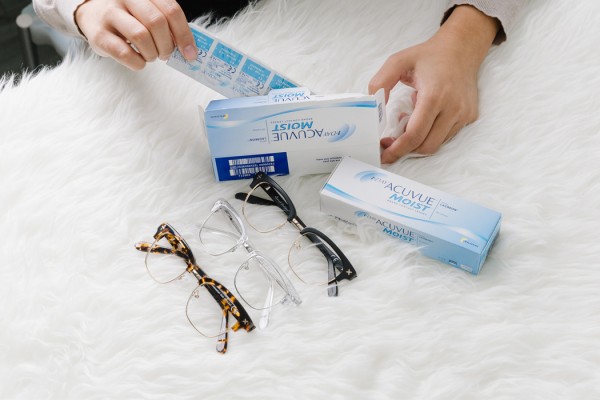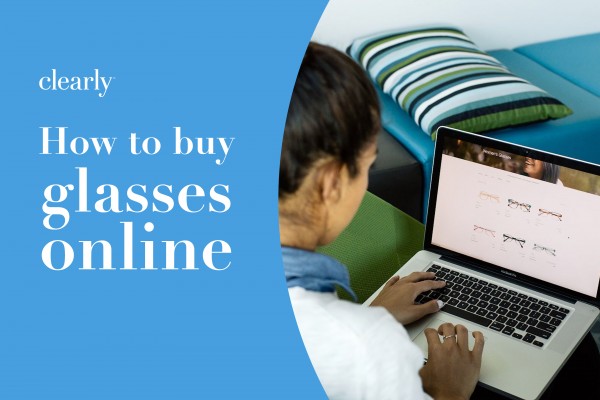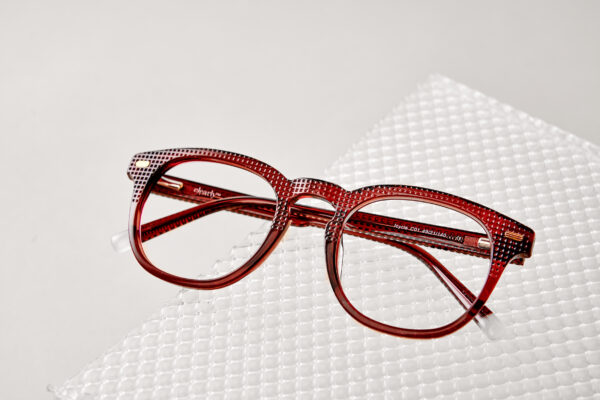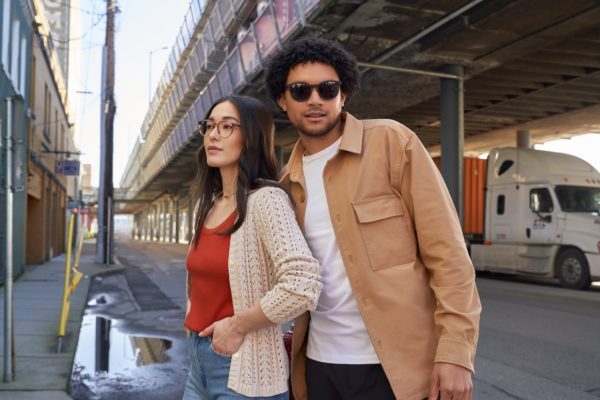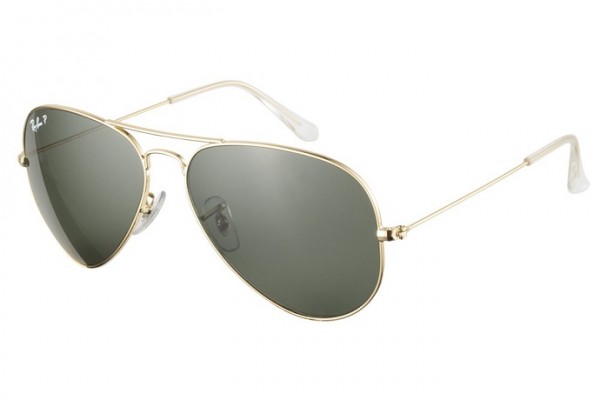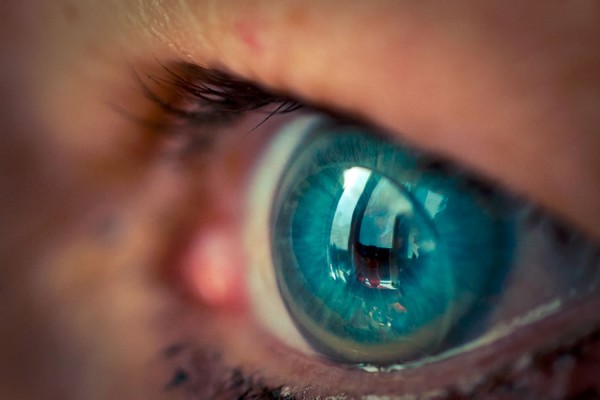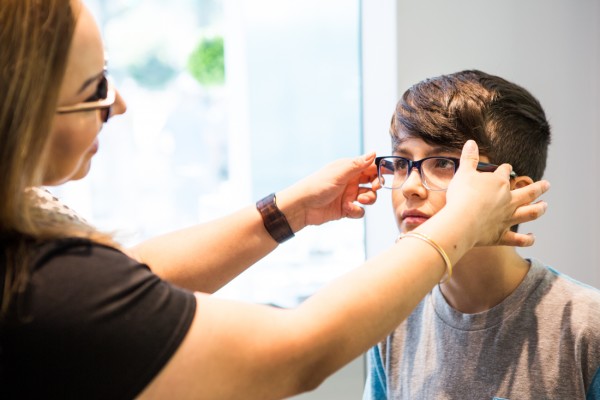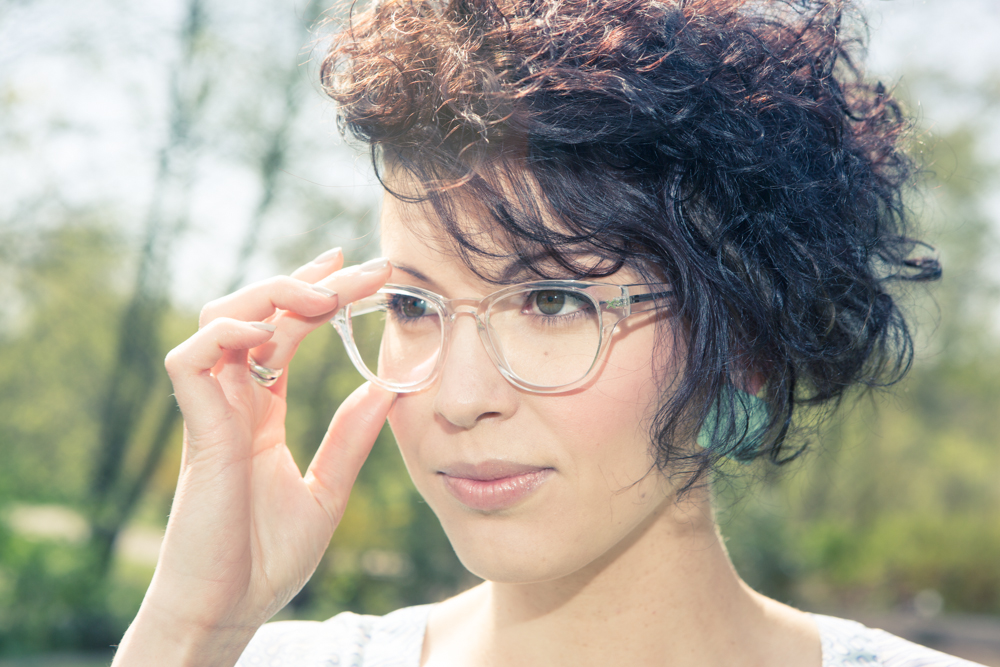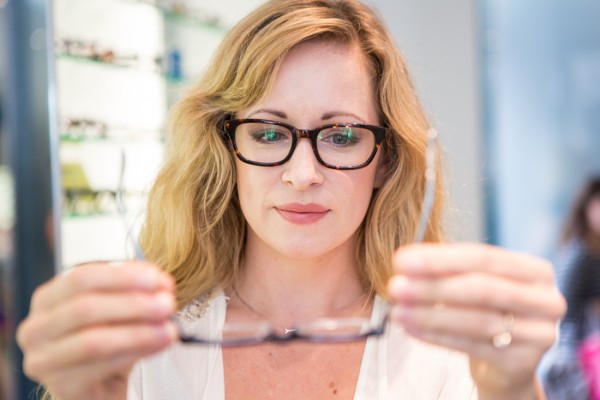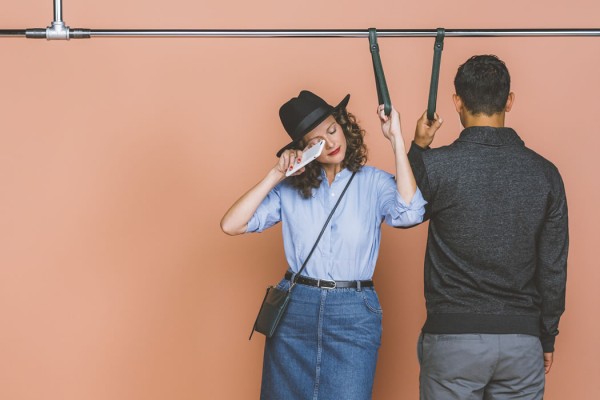Whether or not you should be wearing glasses all the time really depends on your vision needs, your prescription, and your lifestyle. You eye doctor is the best person to ask for advice on your specific glasses wearing schedule.
Here, we talk you through the basics of what you need to know about wearing glasses, how different types of lenses can support your eye health, and how long you should consider wearing them for.
Why do we wear glasses in the first place?
Glasses are generally used to correct refractive errors.
Refractive errors are the most common type of vision problem – they make it hard to see things clearly and can cause double vision, squinting, headaches, eye strain, or glare. However, refractive errors might not always be obvious – which is why regular eye exams are so important.

Refractive errors often have to do with the shape of your eyes or the age of your lenses. They affect the way your eye processes light and prevent light from focusing correctly on your retina, which causes problems with the way you see the world.
Different types of refractive errors include:
- Myopia (nearsightedness): Far away objects look blurry
- Hyperopia (farsightedness): Near and intermediate objects look blurry
- Astigmatism: Far and near objects look blurry
- Presbyopia: Occurs in middle-age adults and makes it difficult to see things up close
How to correct for refractive error
It all begins with an eye exam. Your optometrist will test each of your eyes to identify where the refractive error occurs in one or both of your eyes. From there, they’ll write an eyewear prescription based on your vision needs.
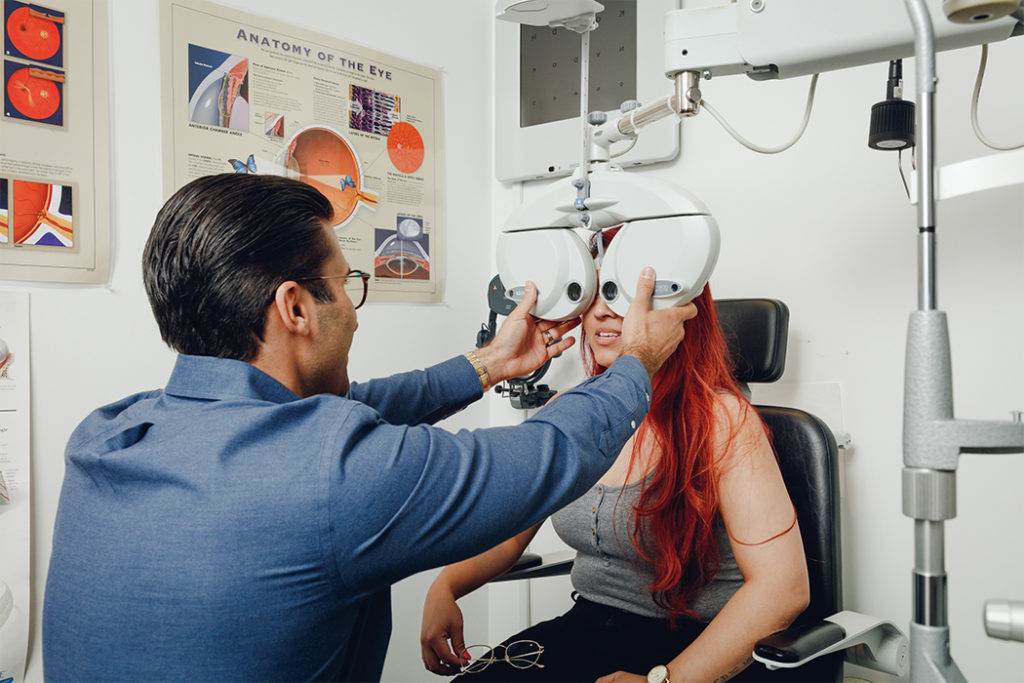
Your glasses lenses are created based on your prescription, designed to bend the light so that it focusses correctly on your retina, to correct for refractive error and allow you to see clearly.
Single vision glasses lenses are designed to correct either near or distance refractive error. Glasses (such as progressives) are designed to correct near, intermediate and far correction in one pair.
How long to wear glasses (based on your prescription)
Depending on what type of refractive error you have in one or both of your eyes, your glasses wear schedule will vary. It really comes down to your individual needs and lifestyle.
Your optometrist will help you understand whether your glasses should be worn all the time or only for certain tasks.
Some people may only need to wear their glasses when they need to see far away objects, or objects that are close. Others need to wear their glasses all the time to see objects at near and far distances.
What glasses can do for you

Glasses can be a life-changing solution for many reasons:
1. Enable better, safer vision
As well as making it easier for you to see clearly and more comfortably during your day to day activities, glasses can make your routine much safer – especially when it comes to tasks like driving.
They allow you to make the most of your day with peace of mind that you’re seeing to your best ability.
2. Reduce eye strain
Wearing glasses to correct for refractive errors means your eyes will be less strained, as they won’t be constantly overworked.
As well as better visual comfort, this can reduce headaches and other side effects that come along with impaired vision.
3. Prevent wrinkles
Wearing glasses means you won’t need to constantly squint to process what you’re seeing, which will reduce the chance of wrinkles from developing around your eyes and forehead.
What glasses don’t do

It’s important to remember that glasses don’t impact your overall eye health. While they help to correct your existing vision issues so you can see clearly and comfortably, they don’t improve your eyes (or make them worse) over time.
The exception to this is children with amblyopia (lazy eye) – wearing glasses can help to improve this condition, as children’s eyes are still in a stage of development.
Lenses to wear throughout the day
As well as correcting for refractive errors, glasses can help to protect your eyes and keep them healthy throughout your daily routine.
UV protection and blue light filter
Our eyes are exposed to different strains of light, including UV radiation and blue-violet light from the sun, as well as artificial light sources.
Over time, exposure to these wavelengths of light can put us at risk of developing eye-related disease. Certain types of glasses lenses can help to reduce exposure and protect your eyes.
Blue light filtering lenses

Blue light filtering lenses like our BlueReflect PlusTM lenses block out UV rays and filter out blue-violet light emitted from the sunlight and artificial light sources. They’re designed to be worn indoors when you’re working or relaxing and outdoors when you’re not wearing sunglasses.
These lenses help to reduce oxidative stress on retinal tissue, which helps to preserve retinal health over the long term.
Some studies show that too much exposure to blue light* can increase the risk of retinal cell damage. *blue-violet light is between 400 and 455nm as stated by ISO TR20772-2018, which is considered potentially harmful.
(ISO: International Standards Organization – “Ophthalmic optics – Spectacles lenses – Short Wavelength visible solar radiation and the eye, FD ISO/TR 20772”)
You can get prescription blue light filtering lenses, to correct for refractive errors while also protecting your eyes.
Can I wear blue light glasses all the time?
Yes – blue light filtering lenses can be worn all day long. As well as filtering out blue-violet light, they also shield your eyes from UV emitted from the sun.
UV protective lenses
This block contains unexpected or invalid content.ResolveConvert to HTML

Wearing sun lenses that offer optimal UV protection when you’re outside will shield your eyes from UV and improve your visual comfort.
Prescription sunglasses will also correct refractive error, so you can see clearly and safely when you’re outdoors or driving in bright conditions.
Transitions® lenses

Photochromic lenses like Transitions® are designed to adapt to changing brightness, turning light or dark based on UV exposure.
As well as protecting your eyes from UV, they offer comfort for those who experience headaches, blurred vision, and other light sensitivity symptoms. And – you guessed it: you can get prescription Transitions® lenses to correct for refractive error, too!
Safety glasses
Safety glasses are designed to protect your eyes during activities where there’s a risk they they’ll be exposed to loose fragments or debris, such as if you’re working on a construction site or participating in high impact sports.
So – how often should I wear my glasses?
Your glasses are designed to help you see correctly and safely throughout your routine, and so how often you wear them truly depends on your lifestyle and vision care needs.
This block contains unexpected or invalid content.ResolveConvert to HTML

Those who need glasses to see both near and far distances – and whose doctors have recommended to wear them full time – should wear their glasses all day.
People who are nearsighted or farsighted and have been prescribed glasses for task-specific purposes may only need to wear them for certain activities.
If you don’t require glasses for near and far distances but you spend a lot of time working or relaxing, you might consider wearing non-prescription blue light filtering lenses for all your routine activities, indoors and outdoors.
And of course, everyone should switch to UV protective lenses when they’re spending time outside!
When in doubt, talk to your eye doctor about the best glasses wear schedule for your lifestyle. If it’s been over a year since your last eye exam, be sure to book in to get your eyes checked as soon as possible.
If you’ve already got an up-to-date prescription, check out our huge range of glasses and sunglasses that are so stylish, you’ll want to wear them as much as you possibly can!
Source
Published in the peer-reviewed journal PlosOne in 2013: (Arnault, Barrau et al., PlosOne, 2013). https://journals.plos.org/plosone/article?id=10.1371/journal.pone.0071398, Published in the peer-reviewed journal Cell Death and Disease (Impact factor ~6). (Marie et al., Cell Death and Disease, 2018) https://www.nature.com/articles/s41419-018-0331-5


